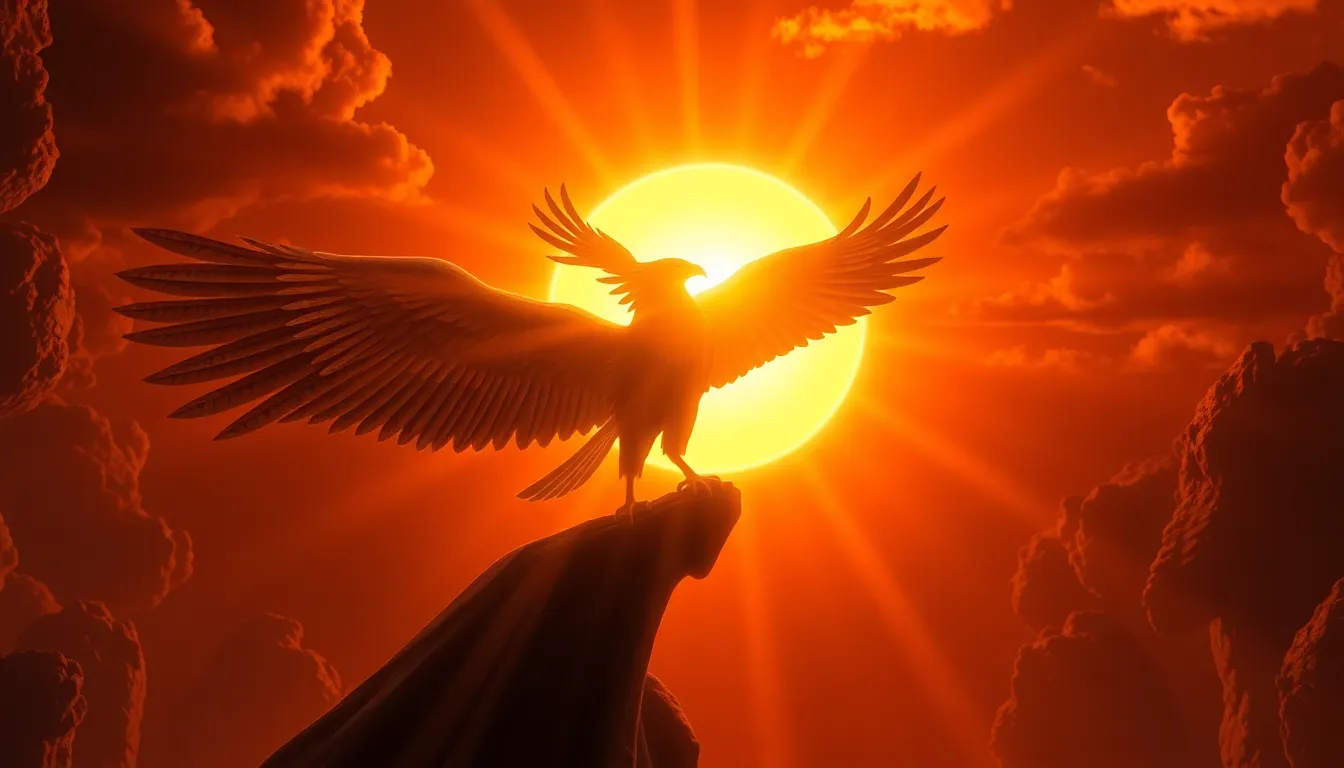Horus and the Sun: The Falcon God’s Radiant Role
I. Introduction
In ancient Egyptian mythology, Horus stands as one of the most significant deities, often represented as a falcon or a falcon-headed man. His prominence in the pantheon is not merely a reflection of his royal lineage but also of his deep connections to the sun and its life-giving properties. The sun held a sacred place in ancient Egyptian culture, symbolizing order, prosperity, and rebirth. This article aims to explore the multifaceted relationship between Horus and the sun, highlighting how this connection shaped ancient beliefs and practices.
II. The Mythological Background of Horus
Horus is often regarded as the son of Osiris and Isis, embodying the ideals of kingship and divine authority. His lineage is steeped in myth, with tales of his struggle against his uncle Seth, who represents chaos and disorder. This conflict not only establishes Horus as a heroic figure but also symbolizes the eternal struggle between good and evil.
- Origins: Horus is born after Osiris is murdered by Seth, and his mother, Isis, uses her magical abilities to protect and raise him.
- Key Myths: The most famous myth involves Horus avenging his father’s death by battling Seth. Eventually, Horus triumphs, which restores order to Egypt and legitimizes his role as king.
- Symbolism: The falcon, often associated with Horus, symbolizes the sky and the divine. It represents vision, power, and protection, as falcons are known for their keen eyesight and hunting prowess.
III. Horus as a Solar Deity
Horus’s relationship with the sun is profound, as he embodies various solar aspects throughout different periods of Egyptian history. The association of Horus with solar symbolism is evident in several key aspects:
- Solar Symbolism: Horus is often depicted with a sun disk above his head, signifying his status as a solar deity. This imagery reinforces his role in the cycle of life and death.
- Variants of Horus: One prominent form is Horus Ra, who merges the attributes of Horus with those of Ra, the sun god. This fusion highlights the importance of solar worship in relation to kingship and governance.
- Daily Solar Cycle: Horus is believed to traverse the sky during the day, representing the sun’s journey. His role in the daily cycle reinforces the idea of renewal and resurrection.
IV. Iconography and Representations of Horus
The artistic representations of Horus are varied and rich, reflecting his significance in ancient Egyptian culture.
- Depictions: Horus is commonly depicted as a falcon or a man with a falcon head, symbolizing his divine nature and connection to the heavens.
- Sun Disk Imagery: The sun disk, often shown above his head, symbolizes his power and divine authority, linking him directly to the sun’s life-giving force.
- Temple Art: In temples, Horus is frequently portrayed in scenes of worship and kingship, emphasizing his role as protector and guide for the pharaohs.
V. The Cult of Horus and Sun Worship
The worship of Horus was central to the religious practices of ancient Egypt, particularly in the context of solar worship.
- Major Temples: The Temple of Horus at Edfu is one of the best-preserved temples dedicated to this deity, showcasing intricate carvings and inscriptions that celebrate his solar attributes.
- Rituals: Rituals included offerings and ceremonies that honored Horus as a solar deity, emphasizing the importance of the sun in agricultural cycles and daily life.
- Integration with Sun Gods: Horus was integrated into the larger pantheon of sun gods, reinforcing the idea of a unified solar divinity that was essential for life and order.
VI. Theological Implications of Horus and the Sun
The theological significance of Horus extends into various aspects of ancient Egyptian beliefs, particularly regarding kingship and the afterlife.
- Kingship: Horus symbolizes the divine right of pharaohs to rule, as they are often seen as the earthly embodiment of Horus.
- Pharaohs and Solar Mythology: The pharaohs were considered the living Horus, and their connection to the sun was crucial for maintaining Ma’at, the principle of order and harmony.
- Afterlife: In resurrection narratives, Horus plays a vital role, guiding souls through the afterlife and ensuring their rebirth, similar to the sun’s daily resurrection.
VII. Influence of Horus on Later Cultures
The legacy of Horus extends beyond ancient Egypt, influencing various cultures and mythologies.
- Greco-Roman Mythology: Horus’s attributes were absorbed into Greco-Roman beliefs, with parallels drawn to gods such as Apollo and Helios, who also represent light and divinity.
- Comparative Analysis: Other sun deities, such as the Incan Inti and the Hindu Surya, share similarities with Horus, emphasizing the universal significance of solar worship.
- Modern Interpretations: Today, Horus is often represented in popular culture, symbolizing strength, protection, and the eternal struggle for justice.
VIII. Conclusion
In summary, Horus’s significance as the Falcon God and solar deity is a testament to the ancient Egyptians’ deep reverence for the sun and its vital role in their worldview. The enduring legacy of Horus continues to inspire interest and admiration, reminding us of the rich tapestry of beliefs that shaped ancient cultures. Understanding the connections between Horus and the sun not only enriches our knowledge of Egyptian mythology but also allows us to appreciate the universal themes of divinity, kingship, and the cyclical nature of life.




